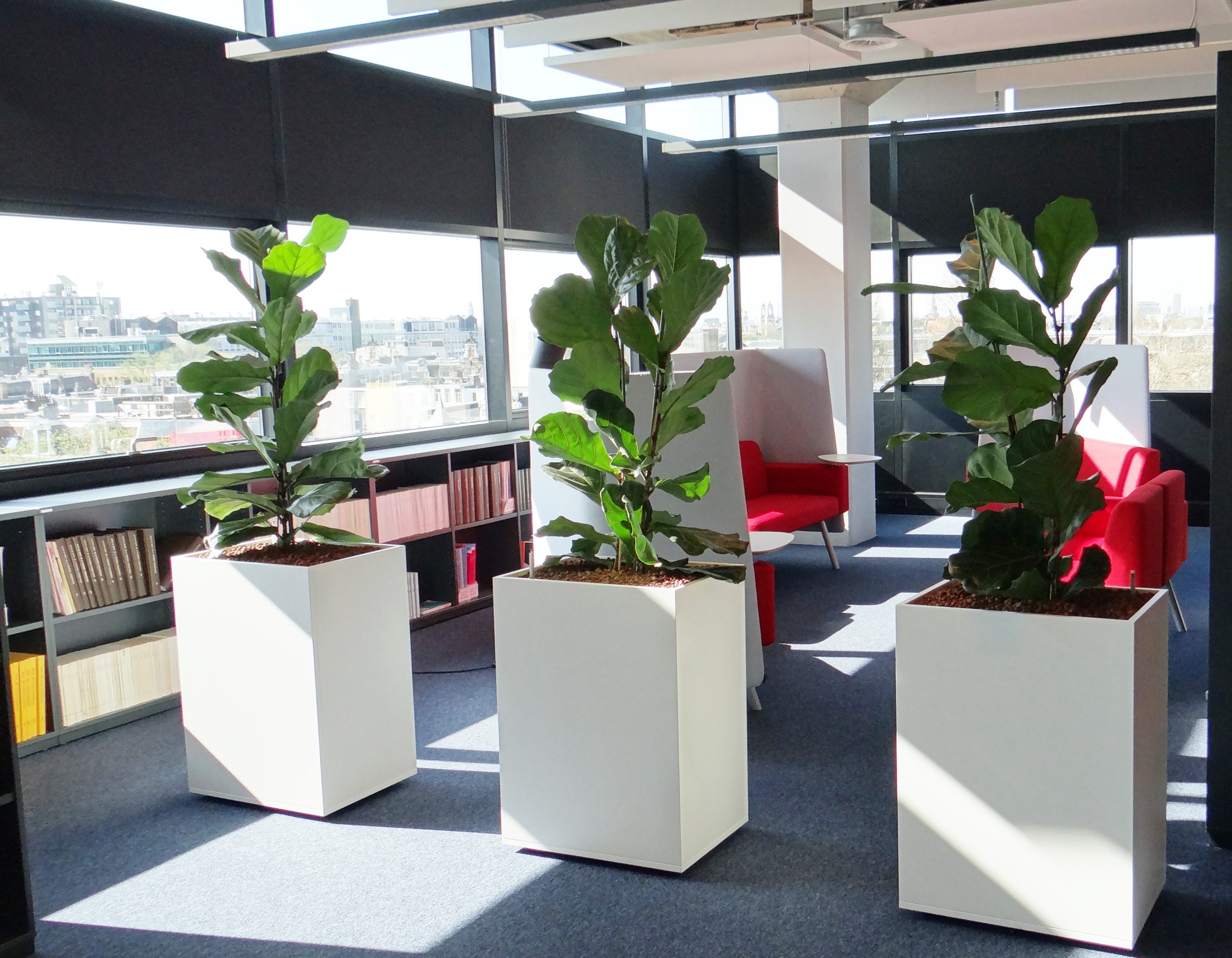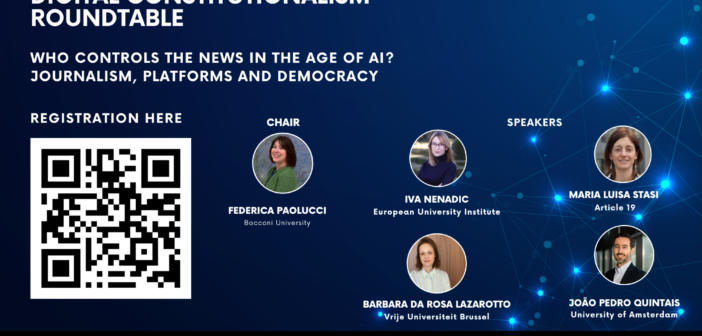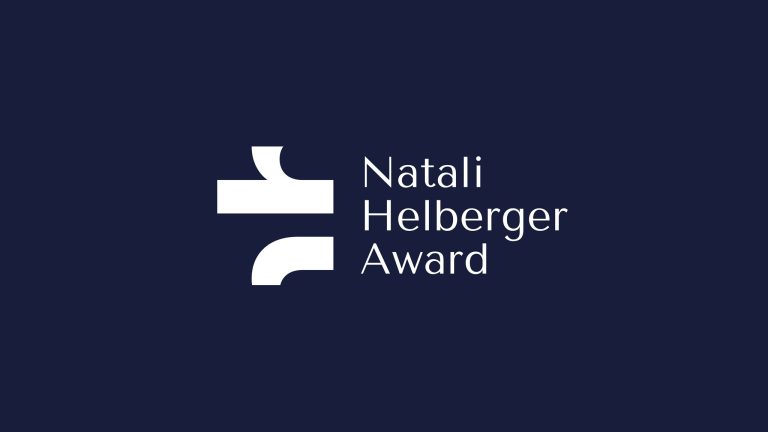
| Conference: The DSA and Platform Regulation Conference 2026 16 & 17 February 2026 |
| IVIR Lecture Series: Does EMFA really strengthen media freedom in Europe? 20 February 2026 |

IViR Summer Courses:

| Conference: The DSA and Platform Regulation Conference 2026 16 & 17 February 2026 |
| IVIR Lecture Series: Does EMFA really strengthen media freedom in Europe? 20 February 2026 |

IViR Summer Courses:

The roundtable “Who controls the news in the age of AI”, hosted by MediaLaws, DICOPO and DigCon, brought into sharp focus a central issue of our time: how the governance of AI-mediated information reshapes democratic structures, media pluralism, and constitutional values.

The Natali Helberger Award recognizes doctoral students who have conducted research through interdisciplinary collaboration that advances a Public Interest Technology (PIT) perspective in communication studies, journalism studies, and related fields across the social sciences and law. PIT provides a framework for rethinking the institutions, infrastructures, and technology-embedded services that shape society in pursuit of the public good.

On 18 December 2025, Prof. Herman Cohen Jehoram passed away at the age of 92.